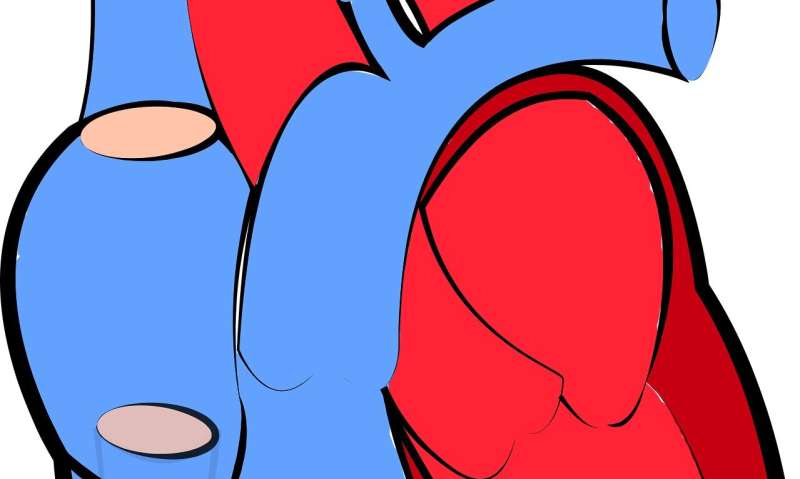Less aggressive treatment better for heart patients who go into shock

Less is sometimes more when treating heart patients who go into shock after a heart attack.
A new study found that more than 30 percent of hospital patients who have a heart attack complicated by low blood pressure undergo an aggressive treatment in which coronary stents are placed in cardiac blood vessels showing any restriction of blood flow to the heart. This is happening despite the existence of a less aggressive approach, called a "culprit-only" strategy, that places stents only in the blocked blood vessels that caused the heart attack.
The study, led by Yale and Beth Israel Deaconess Medical Center, looked at patients undergoing either of the two procedures at hospitals in the United States from 2009 to 2018. The study's aim was to evaluate patterns in the use of the aggressive, multivessel procedure.
In 2017, an unrelated study found that the more aggressive procedure may lead to a higher death rate than the more conservative treatment. But until now, no research has examined patterns in the use of the two treatments such as relative frequency and its variation among hospitals.
"Our work emphasizes the need for optimization of care practices for a group of patients who experience really bad outcomes," said Dr. Rohan Khera, an assistant professor of cardiovascular medicine at Yale and first author of the study. "In this case, less is more."
The senior author of the study is Dr. Robert Yeh of Beth Israel Deaconess Medical Center.
Overall, more than one-third of all heart attack patients who go into shock die during their initial hospital presentation. About half of them die within one year. By contrast, the mortality rate for heart attack patients who do not go into shock is less than 5%.
Despite concerns about the aggressive stenting of multiple blood vessels raised in the 2017 research, Khera said, his team found no early signals that its revelations have affected the proportion of patients undergoing aggressive versus more conservative stenting approaches.
But, he said, the team found wide variation among hospitals as to the approach they use—and that "those hospitals using multi-vessel treatments more frequently had worse patient outcomes."
More information: Rohan Khera et al. Revascularization Practices and Outcomes in Patients With Multivessel Coronary Artery Disease Who Presented With Acute Myocardial Infarction and Cardiogenic Shock in the US, 2009-2018, JAMA Internal Medicine (2020). DOI: 10.1001/jamainternmed.2020.3276



















